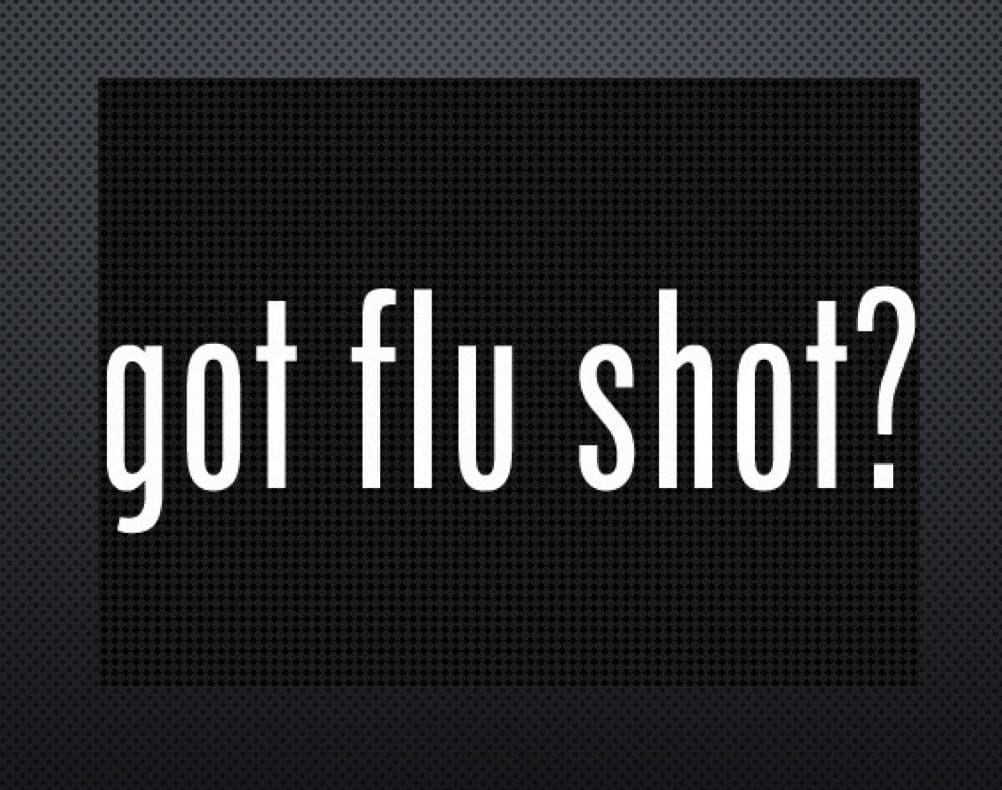Search Posts
Recent Posts
- Who’s cooking at the Conclave? – Chef Walter Potenza May 6, 2025
- More funds for energy assistance from RI Good Neighbor Energy Fund May 6, 2025
- Rhode Island Weather for May 6, 2025 – Jack Donnelly May 6, 2025
- Rhode Island Real Estate market, May 2025: What you need to know – Emilio DiSpirito May 6, 2025
- ART! Arts Day at the RI State House May 6, 2025
Categories
Subscribe!
Thanks for subscribing! Please check your email for further instructions.

RI Health Dept. Urges Flu Shots for People Not Yet Vaccinated
With states in New England and across the country seeing elevated levels of flu activity over the last several weeks, the Rhode Island Department of Health (RIDOH) is reminding all Rhode Islanders who have not yet been vaccinated that flu shots are your best protection against the flu.
Massachusetts, Connecticut, and more than a dozen other states are now reporting widespread flu, which is the highest tier in the five-tier system used to measure flu activity. The flu in Rhode Island is currently regional (the tier just short of widespread). To date, there has been one flu-related death and 24 flu-related hospitalizations in Rhode Island this flu season. During the 2018-2019 flu season, there were 39 deaths and 1,032 hospitalizations associated with the flu.
“After getting a flu shot, it usually takes someone roughly two weeks to start developing the antibodies that provide protection against the flu. For people who have not been vaccinated and who plan to get together with family and friends for the holidays, now is the perfect time to get vaccinated,” said Director of Health Nicole Alexander-Scott, MD, MPH. “A flu shot can help you avoid serious illness, doctor visits, missed work, or missed school, and it can also help you keep the people you love healthy and safe by reducing the spread of the flu.”
Everyone older than six months of age should be vaccinated every year. Vaccination is particularly important for certain people, including the elderly, young children, pregnant women, healthcare workers, and people with chronic medical conditions (such as asthma or diabetes). Even if someone is vaccinated and still gets sick, a flu shot can reduce the severity of that person’s illness.
RIDOH is also reminding Rhode Islanders about seeking medical care in the most appropriate setting. Many types of illnesses and injuries do not require an emergency department visit, including flu when the symptoms are not so severe. Going to an emergency department for a case of the flu with symptoms that are not severe will likely result in a long wait because emergency departments prioritize more serious injuries and illnesses. Cases of the flu with symptoms that are not severe are often more quickly treated by a primary care provider or in an urgent care facility. RIDOH has information and lists online for urgent care facilities, as well as for community health centers and other express care facilities in the state. (Link below)
Some cases of the flu, however, should be treated in an emergency department. Warning signs that indicate that someone with the flu does need to go to the emergency department include difficulty breathing or shortness of breath; pain or pressure in the chest; and having flu-like symptoms that improve but then return with fever and worse cough. If someone is not sure if they need to go to the emergency department, they should contact their primary care provider. A primary care provider will be able to provide guidance about the next best step. (Most offices have physicians on-call after hours.)
Another common illness this time of year is norovirus, sometimes called the “stomach bug.” Norovirus is a highly contagious virus that can cause people to have extreme stomach pain, nausea, vomiting, or diarrhea for 24 to 48 hours. It spreads when people get tiny particles of feces or vomit from an infected person in their mouth. This can happen by eating food or drinking liquids that are contaminated with norovirus; touching surfaces or objects that are contaminated with norovirus; or if an infected person vomits in a public space.
Steps that people should take to keep themselves and communities healthy and safe from the flu, norovirus, and other viruses include:
– Get vaccinated against the flu. By being vaccinated now, you can still get several months of protection. – Cover your nose and mouth with a tissue when you cough or sneeze, or cough into your elbow. After using a tissue, throw it in the trash and wash your hands. – Avoid touching your eyes, nose, and mouth. Germs spread this way. – Wash your hands carefully with soap and water regularly, especially right after using the toilet or changing diapers, taking or giving someone else medicine, and before eating or preparing food. – Clean and disinfect surfaces and objects that may be contaminated with germs frequently. – Stay out of work or school if you are sick. If you become sick with a flu-like illness, you should not go back to work or school until you have not had a fever for 24 hours without the use of a fever-reducing medicine. – If you experience vomiting or diarrhea, stay home until after those symptoms clear completely. Sick workers in restaurants and other food service occupations, schools, childcare centers, healthcare facilities, must not return to work for 48 hours after symptoms abate.
RINewsToday Note: Many CVS stores provide flu shots and also give a $5 off coupon for a purchase of $25 or more in the store.
